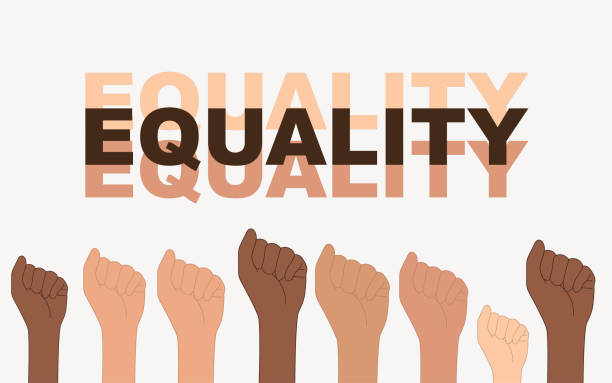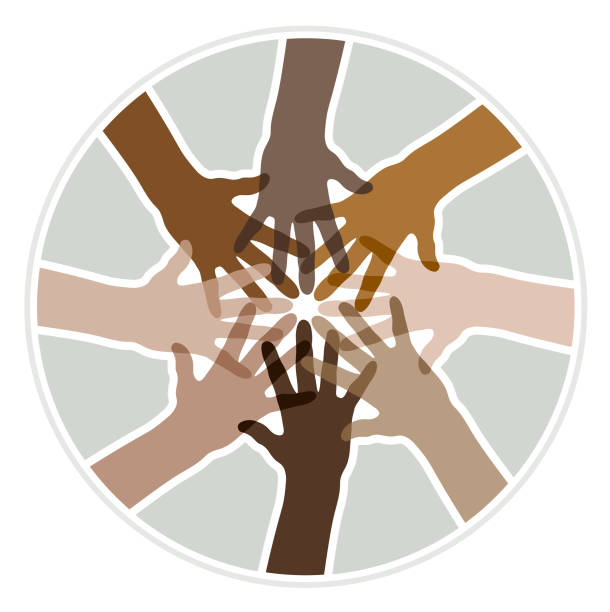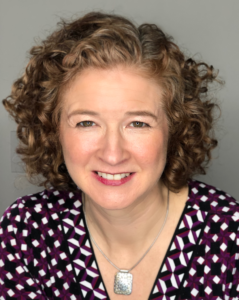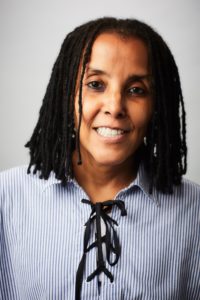anti-racism resources
CARES Programs & Resources

Speaker: Shamil Idriss, CEO of Search for Common Ground
The U.S. is undergoing the largest and most sustained movement for social change and racial justice in history. No community is untouched. How can we act now individually and as a community? Kick-off remarks and facilitation by Shamil Idriss, New Canaan native and CEO of Search for Common Ground, the world’s largest peace-building organization and nominee for the 2018 Nobel Peace Prize.

Speaker: Mara Gottlieb, PhD, LMSW, President of Talking Changes, LLC
There is no better time than the present to understand racism and its toxic effects on all of us, regardless of our skin color. But we cannot confront what we don’t know how to discuss, or educate with information we don’t have. This honest, informative training provides the knowledge, language, and tools to boldly and productively address issues of race, racism, and skin color privilege. In a respectful, safe environment, we will have brave conversations about the socially-constructed meanings of skin color and race, and the resulting impact of racism in the United States. Finally, and most importantly, we will work together to find solutions that will empower us to debunk and dismantle structural and individual racism in our communities and within ourselves.
Presented by Mara Gottlieb, PhD, LMSW, President of Talking Changes, LLC. Trainer’s note: I am a white-European woman who cannot and does not speak for people of color. This training is targeted (but not limited) to other white-Europeans who want a deeper understanding of race and racism without asking our friends or colleagues of color to educate us.

www.star-ct.org
At Stand Together Against Racism (“S.T.A.R.”), our mission is to equip residents of New Canaan, CT and neighboring communities with tools and resources to understand systemic racism — including its history, root causes and the structures that perpetuate it— and to proactively advocate for racial equity and bias elimination. We believe that by working together, we can drive transformative and sustainable social change in our community and beyond

Common Sense Media
Today’s kids are growing up in a world where anyone can create anything they wish — a YouTube video, a meme, a tweet. Unfortunately, some choose to use these tools to spread hate, misinformation, and racism. That’s why it’s so critical for parents to be intentional about the media kids are exposed to. Choose media that educates kids in essential human values such as love, understanding, kindness, and compassion. Take the opportunity to discuss how race is portrayed, how stereotypes are perpetuated, and how racial experiences differ. Use our conversation starters to get kids to think more deeply about these topics. Now, more than ever, our kids really need to learn these lessons.

Debby Irving, Racial Justice Educator and Writer
Here are resources to move us all away from whitewashed history and literature while guiding us in having conversations that support that movement.
In fall 2020, New Canaan Library, New Canaan Museum & Historical Society, New Canaan Community Foundation, the Interfaith Council of New Canaan, Grace Farms Foundation, and B kind co-hosted “The Start of Change: Addressing Racism,” a lecture series created to address our community’s understanding of race and racism.

Speaker: Professor Justene Hill Edwards, University of Virginia
Though the number of enslaved people in New England was not on par with the number of enslaved Africans in the Southern colonies, the existence of slavery in colonial New England cannot be ignored. In fact, enslaved African and indigenous labor was a visible aspect of life in colonial New England. Presented by Professor Justene Hill Edwards, assistant professor in the Corcoran Department of History at the University of Virginia, the talk will explore the complex history of slavery in colonial New England and discuss how the experiences of enslaved people in New England shaped their fight for freedom into the 19th century.
Professor Justene Hill Edwards is an assistant professor in the Corcoran Department of History at the University of Virginia. A scholar of African-American history, Hill Edwards specializes in the history of slavery and the history of capitalism in the United States. She received her doctorate in history from Princeton University, holds an MA in African New World studies from Florida International University, and a BA in Spanish from Swarthmore College. Hill Edwards’ first book is Unfree Markets: The Slaves’ Economy and the Rise of Capitalism in South Carolina (forthcoming, March 2021 on Columbia University Press, in the Columbia Series in the History of U.S. Capitalism).

Speaker: The Right Reverend Doctor John L. Sanders
In this lecture, participants will be taken through a brief historical survey and look at White Supremacy and Racism in the US from the end of the Civil War through to the present. From Lincoln’s Emancipation Proclamation to Plessy v. Ferguson and Jim Crow laws, to the civil rights movement of the 20th century to the crisis that surrounds us now, Bishop Selders will highlight moments in our shared history and reference particular events that connect the historic landscape.
The Right Reverend Doctor Bishop Selders Jr. is an ordained minister serving in the United Church of Christ, the Organizing Pastor of Amistad United Church of Christ, Hartford, CT, former Associate College Chaplain and currently Assistant Dean of Students, Trinity College, Hartford, CT and one of the leaders of Moral Monday CT. For 15 years, he served Executive Director of Zezzo House (an 18 unit housing project) in Hartford, CT. He is the loving spouse of Pamela and father of two, Alisia (daughter), Jay (son) and grand parent of one, Makenzie (granddaughter). Bishop Selders has done his academic and theological reflection attending Life Christian Bible College, Webster University, Eden Theological Seminary and Anglican Divinity School

Speaker: Professor Justene Hill Edwards, University of Virginia
Social justice issues have been front and center in today’s political climate. Inequality – in particular, economic inequality—is at the heart of this social justice agenda, as it was during the civil rights movements of the mid-20th century. “Black Lives Matter” has opened many eyes, bringing concerns long discussed within African-American communities to the surface for all Americans to see. From the violent effects of slavery and Jim Crow to redlining, African Americans have faced hurdles to accessing the basic building blocks of intergenerational wealth in America. Professor Justene Hill Edwards, PhD, will examine the historical relationship between racial discrimination and economic inequality, and discuss why economic inequality continues to be at the forefront of social justice agendas in modern America.
Professor Justene Hill Edwards is an assistant professor in the Corcoran Department of History at the University of Virginia. A scholar of African-American history, Hill Edwards specializes in the history of slavery and the history of capitalism in the United States. She received her doctorate in history from Princeton University, holds an MA in African New World studies from Florida International University, and a BA in Spanish from Swarthmore College. Hill Edwards’ first book is Unfree Markets: The Slaves’ Economy and the Rise of Capitalism in South Carolina (forthcoming, March 2021 on Columbia University Press, in the Columbia Series in the History of U.S. Capitalism).

Speaker: Erin Boggs, Executive Director of Open Communities Alliance
How does housing in Connecticut stand in terms of open access and freedom from discriminatory hurdles? Join us for the sixth and final session in the Start of Change series, when Erin Boggs, Executive Director of Open Communities Alliance, will discuss the history of segregation in Connecticut, where we stand today with regard to segregation and access to opportunity, and potential solutions in the state and locally.
Erin Boggs has worked on issues of equity, particularly in the context of housing, for almost 20 years. After dedicating years to a range of fair housing issues, such as the foreclosure crisis, housing challenges for people with disabilities, and discrimination based on a range of characteristics such as the presence of children, the use of government housing subsidies, and race and ethnicity, Ms. Boggs recognized the need for an organization specifically focused on the intersection of inequality and geography. Ms. Boggs is a graduate of Wesleyan University and Georgetown University School of Law.

Speaker: Kica Matos, Vice President of Initiatives at the Vera Institute of Justice
Join Vera’s Vice President for New Initiatives Kica Matos and Dr. Anka Badurina, Executive Director at The Center for Immigrant Opportunity for a conversation about the enduring legacy of slavery, Jim Crow and mass incarceration. Our panelists will discuss the convergence of the criminal justice and immigrant legal system with a particular focus on Connecticut.
Kica Matos is the Vice President, Initiatives at the Vera Institute of Justice. Matos joined Vera in 2019 as the director of the Center on Immigration and Justice. Prior to joining Vera, Kica was the director of Immigrant Rights and Racial Justice at the Center for Community Change, an organization whose mission is to empower the people most affected by injustice to lead movements to improve the policies that affect their lives. Kica has been a national advocate for immigration reform and coordinated the work of the Fair Immigration Reform Movement, the nation’s largest network of immigrant rights organizations. She has extensive experience as an advocate, community organizer, and lawyer.

